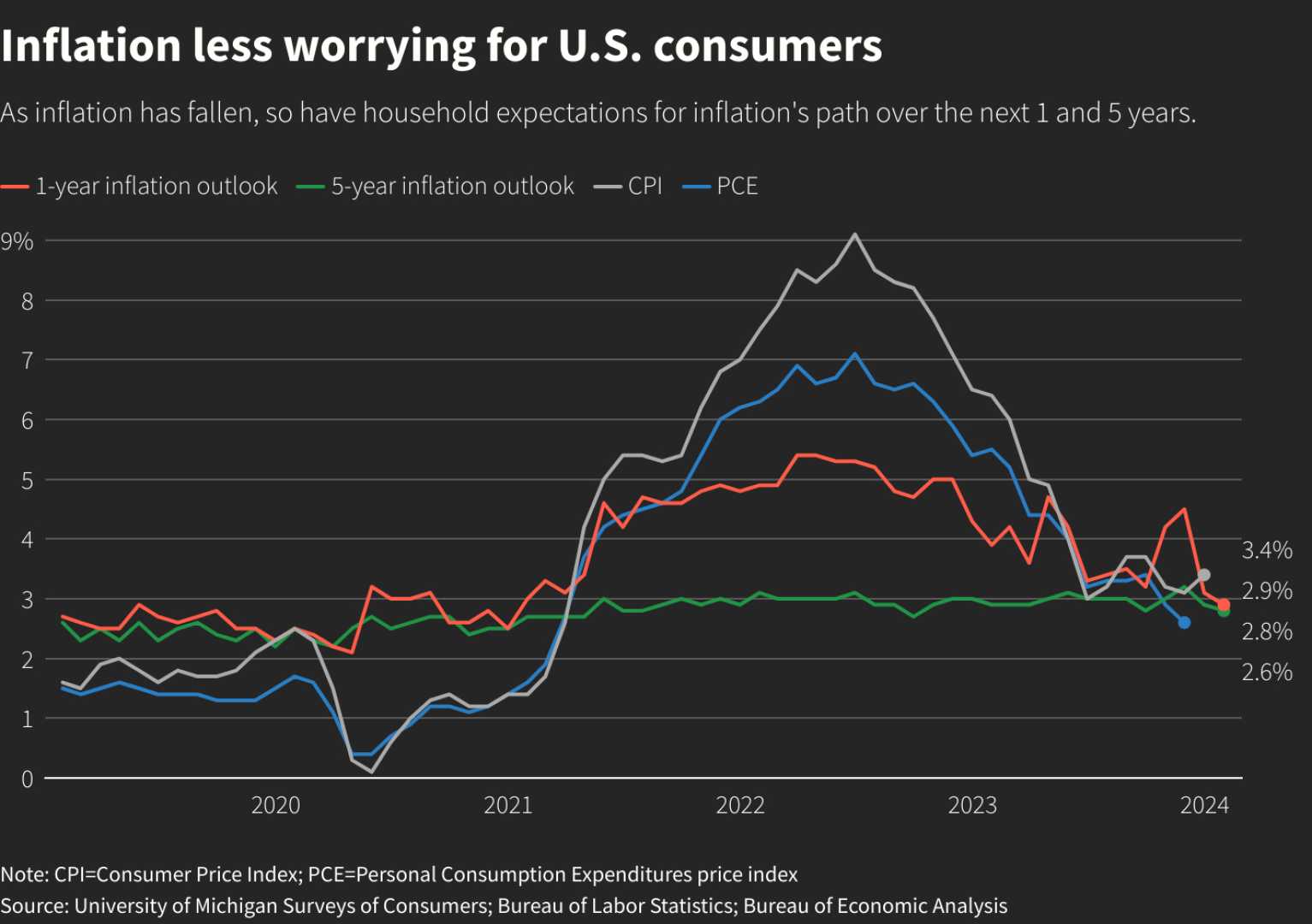Business
U.S. Consumer Sentiment Dips Amid Tariff Fears, Labor Market Worries

WASHINGTON, Jan. 24 (Reuters) – U.S. consumer sentiment declined in January for the first time in six months, driven by concerns over the labor market and potential price increases tied to President Donald Trump‘s proposed tariffs on imports, according to a University of Michigan report released Friday.
The Consumer Sentiment Index dropped to 71.1 this month, down from a preliminary reading of 73.2 and December’s 74.0. Economists surveyed by Reuters had anticipated no change. The final survey closed Monday, coinciding with Trump’s second-term inauguration.
The decline was widespread, affecting all income, wealth, and age groups. “Despite reporting stronger incomes this month, concerns about unemployment rose,” said Joanne Hsu, director of the University of Michigan’s Surveys of Consumers. “About 47% of consumers expect unemployment to rise in the year ahead, the highest since the pandemic recession.”
One-year inflation expectations held steady at 3.3%, unchanged from the preliminary estimate but up from 2.8% in December. This marks the highest level since the pre-pandemic range of 2.3%-3.0%. Long-run inflation expectations were revised down slightly to 3.2% from 3.3% but remained above December’s 3.0%.
Hsu noted that concerns about inflation were pervasive in survey responses, with many linking them to anticipated policies such as tariffs. “Concerns over the future trajectory of inflation were visible throughout the interviews and were tied to beliefs about anticipated policies like tariffs,” she said.
The report underscores growing unease among consumers as the new administration’s economic policies take shape, particularly regarding trade and labor market stability.












